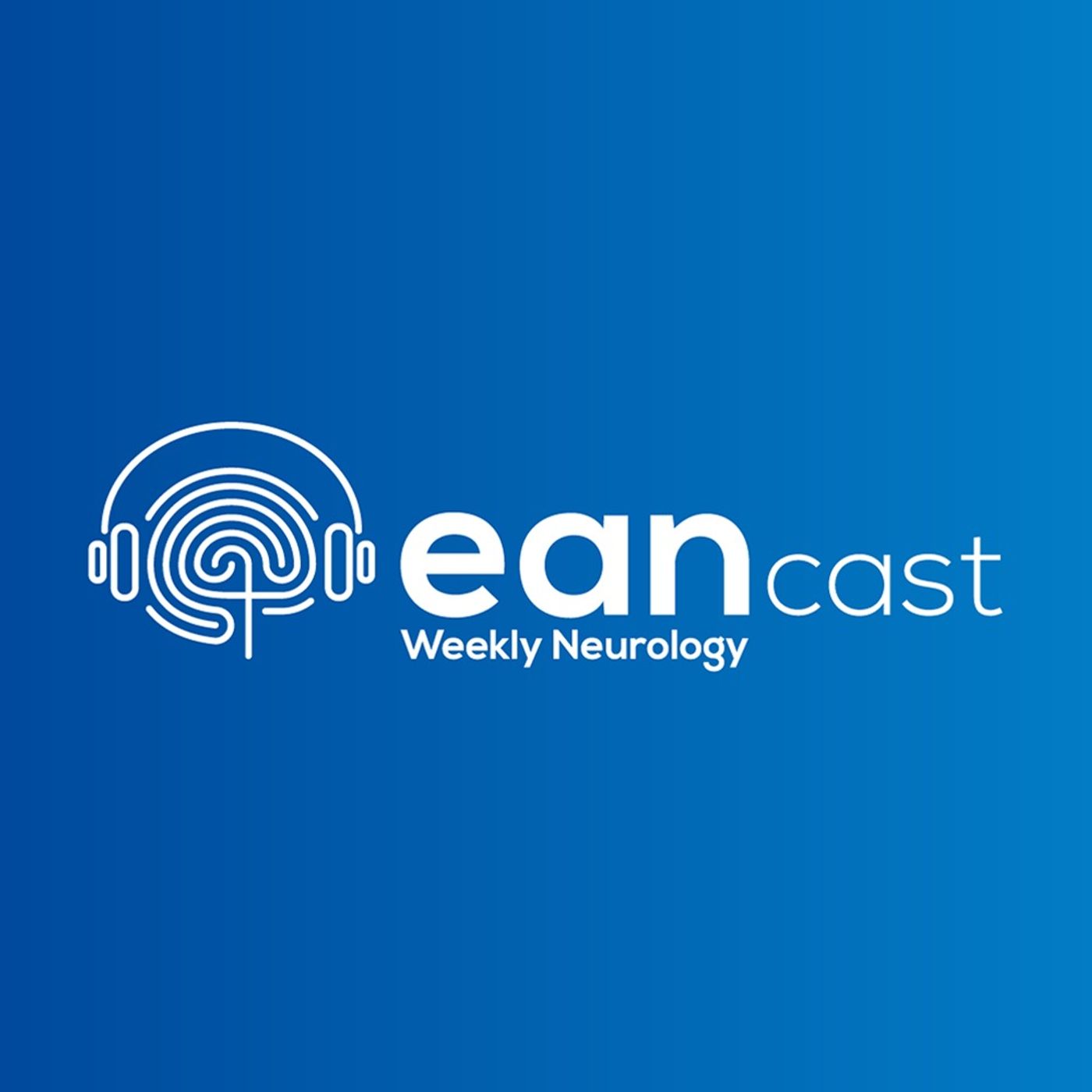

eanCast: Weekly Neurology
ean.org
Official neurology podcast of the European Academy of Neurology (EAN). Expert talks on general neurology, stroke, dementia, epilepsy & many more. New episodes every Monday. For neurology residents, clinicians & researchers. A resource for continuing medical education and lifelong learning.
Episodes
Mentioned books

Sep 8, 2025 • 25min
Ep. 165: Small Fiber Neuropathy - A Burning Problem
EAN moderator: Anna K. Szewczyk (Lublin, Poland)
Guest:Grazia Devigili (Milan, Italy)
Anna K. Szewczyk and Grazia Devigili discuss Small fiber neuropathy (SFN), a broad group of conditions affecting small nerve fibers (Aδ or C). SFN is characterized by impaired pain and temperature sensation, as well as autonomic dysfunction. Its diagnosis and treatment are challenging, though recent findings on specific autoantibodies and ion channel polymorphisms offer new perspectives for understanding these forms and developing more targeted therapies.

Aug 31, 2025 • 22min
Ep. 164: EAN e-Learning Update
Moderators and guests: Barbara Tettenborn (Bern, Switzerland) and Roberta Balestrino (Milan, Italy)
Barbara Tettenborn and Roberta Balestrino discuss the journey of the EAN e-learning platform, eanCampus. Launched in 2022, the platform has transformed neurology education by aligning with European Training Requirements for Neurology and offering comprehensive content for all levels of experience. Discover how interactive modules, gamification, and a commitment to high-quality, peer-reviewed material have made the eanCampus a vital resource for neurologists worldwide.

Aug 24, 2025 • 26min
Ep. 163: Use of EEG in Neurointensive Care
Moderator: Tobias Cronberg (Lund, Sweden)
Guest: Andrea Rossetti (Lausanne, Switzerland)
In this episode, Cronberg speaks with Rossetti about the role of EEG in the neuro ICU, with a focus on prognostication and monitoring in critically ill patients. They explore clinical applications, organizational differences across countries, and the value—and limitations—of continuous EEG, spot EEG, and emerging AI tools.

Aug 17, 2025 • 24min
Ep. 162: AI in Resuscitation - A Potential New Member of the Team
Moderator: Marian Galovic (Zurich, Switzerland)
Guest: Federico Semeraro (Bologna, Italy)

Aug 10, 2025 • 28min
Ep. 161: Mentorship in Neurology - Insights from a Mentor-Mentee Pair
A video version of this episode is available on the eanCampus.
In this episode, Vlad speaks with Mentor Gilhus and Mentee Szabó-Mathe about their experiences as a mentor-mentee pair in the EAN Mentorship Programme, reflecting on cultural differences, career transitions, and the value of cross-border professional support.
Are you interested in joining the EAN Mentorship Programme? Mentors can apply all year long; Mentees can apply each year from July-September 15. If you would like to get some more insights, you can check out all our articles on the EAN Mentorship Programme.

Aug 3, 2025 • 15min
Ep. 160: Hypothermia in Cardiac Arrest
EAN Moderator: Thomas Berger (Vienna, Austria)
Guest: Tobias Cronberg (Lund, Sweden)
In this episode, Cronberg joins Berger to discuss the evolving role of hypothermia in neurointensive care, particularly after cardiac arrest. Drawing from large clinical trials and real-world cases, they explore why hypothermia is falling out of favour and what this means for neurologists and emergency care.

Jul 27, 2025 • 21min
Ep. 159: The Price of Neurology - Understanding the Economic Burden of Brain Disorders in Europe
Moderator: Roberta Balestrino (Milan, Italy)
Guest: Richard Dodel (Essen, Germany)
A video version of this episode is available on the eanCampus.
In this episode, Dodel joins Balestrino to explore the social and economic burden of neurological disorders, highlighting findings from the EAN-led COIN (Cost of Illness in Neurology) project. They discuss why diseases like headaches and multiple sclerosis carry some of the highest costs and what this means for healthcare systems across Europe.

Jul 20, 2025 • 34min
Ep. 158: Autogenic Training - A Neurological Approach to Self-Relaxation and Stress Recovery
Moderator: Marian Galovic (Zurich, Switzerland)
Guest: Max Hilz (Erlangen, Germany)
A video version of this episode is available on the eanCampus.
In this episode, Galovic welcomes Hilz to discuss the science behind autogenic training, a self-guided relaxation technique rooted in neurophysiology. Hilz explains how it helps regulate autonomic function, reduce stress, and support patients with neurological and functional disorders.

Jul 13, 2025 • 18min
Ep. 157: Digital Overload - How Screen Time Affects the Brain
Moderator: Barbara Tettenborn (St. Gallen, Switzerland)
Guest: Aviv Weinstein (Ariel, Israel)
A video version of this episode is available on the eanCampus.
In this second July episode of eanCast, Tettenborn and Weinstein explore the cognitive and emotional impact of excessive smartphone and social media use—especially in children and adolescents. From memory and attention deficits to structural brain changes, the conversation offers insights into healthy digital habits and how to protect brain health across the lifespan.

Jul 6, 2025 • 17min
Ep. 156: The Power of Patient Voice – Parkinson’s Europe
Moderator: Yıldız Değirmenci (Istanbul, Türkiye)
Guest: Amelia Hursey (Kent, United Kingdom)
A video version of this episode is available on the eanCampus.
In this episode, Değirmenci speaks with Amelia Hursey, Strategic Director of Parkinson’s Europe, about why patient voices matter in research, advocacy, and care. Together, they explore how clinicians and communities can better support people living with Parkinson’s.


